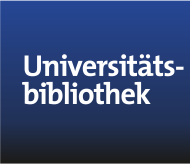Michler
Description Scholars' Library Professor Markwart Michler (1923-2001)
Scholars' Library Professor Markwart Michler (1923-2001)
The European University Viadrina does not have a Faculty of Medicine – and yet its University Library houses a remarkable collection of nearly 1,000 volumes on the history of medicine, once owned by the medical historian Dr Markwart Michler. The books came to the University Library at his own suggestion.
Michler studied medicine in Breslau and Berlin, later specialising in surgery and orthopaedics. He earned his doctorate relatively late, in 1958, with a historical study entitled Physical Exercises in Greek Medicine. While his initial interest lay in the history of his own field, he gradually turned his focus to ancient medicine and the development of surgery and orthopaedics.
In 1961, Michler became an assistant at the Institute for the History of Medicine at the University of Bonn. He moved to Hamburg in 1964. However, his critical engagement with the role of medicine under National Socialism drew disapproval from his director, Johannes Steudel (1901–1973). Undeterred, Michler pursued new intellectual mentors and completed his habilitation in 1965.
His academic path then benefited from a fortunate shift. As student enrolments surged in the 1960s, many universities that had previously relied on part-time lecturers to teach small subjects were now required to appoint full professors. In Gießen, where the history of medicine had long been represented by Edith Heischkel-Artelt (1906–1987) – a figure closely associated with the traditions of National Socialism – the position was now given to her former critic: Markwart Michler.
Upon arrival, Michler took over an institute that was such in name only: its library was minimal, and its resources widely dispersed. Yet the university had a rich past in this discipline: during the 1920s, Gießen even offered a course in Cultural History of Medicine, taught by internist and critic of laboratory medicine Georg Honigmann (1863–1930). Michler drew inspiration from this legacy and focused his teaching on the History of Ancient Healing Cultures, a subject closely intertwined with broader cultural history. He expected his students to possess at least basic knowledge of Latin and Ancient Greek.
During an era when medicine was increasingly shaped by technological breakthroughs and mechanistic thinking, Michler’s work stood in contrast. He questioned the dehumanising tendencies of contemporary medicine, engaged with psychosomatic approaches, and advocated for interdisciplinary perspectives. His lectures and publications reached across disciplines – from medicine and cultural studies to sociology and history – and medical ethics, always historically grounded, was a constant theme in his research.
Michler retired in 1973 and was succeeded by Jost Benedum (1937–2003). Nevertheless, he remained active as a scholar, expanding his focus to include the medical traditions of the Enlightenment and Romanticism. He continued to publish widely, contributing to encyclopaedias, the German Biographical Dictionary, and academic essay collections. Interdisciplinary work remained at the heart of his scholarly ethos.
